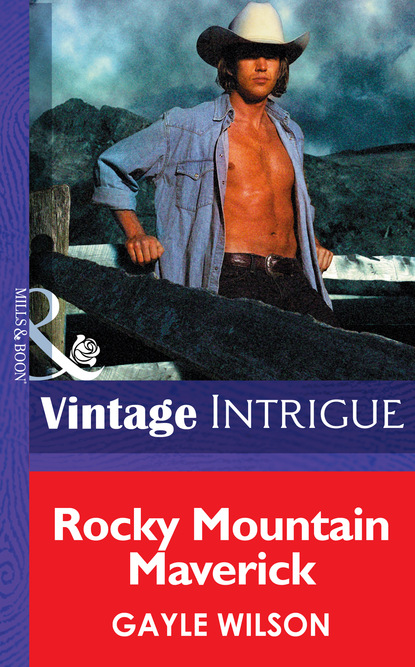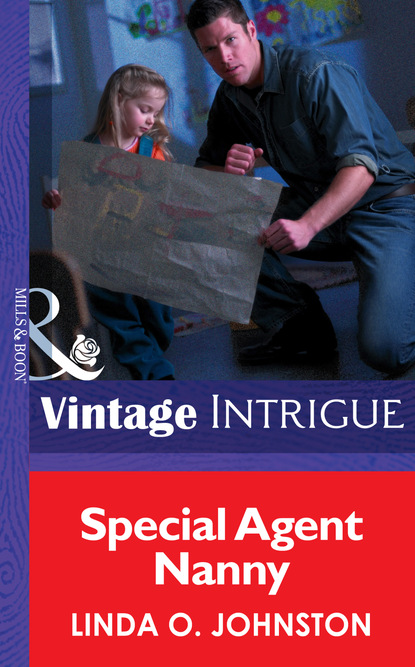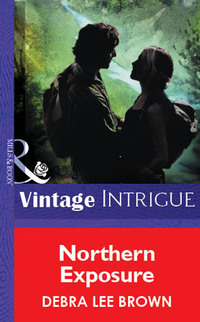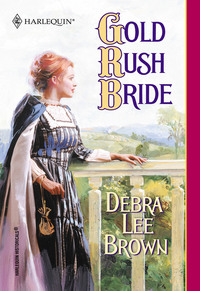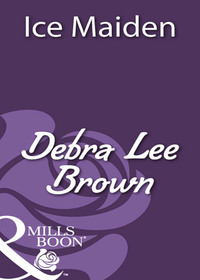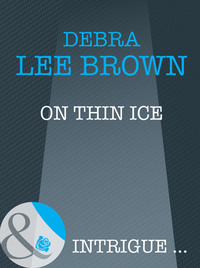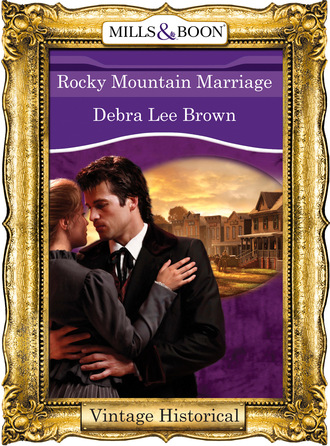
Полная версия
Rocky Mountain Marriage
“You’re not serious about this school idea?”
She stood in the center of the saloon, hands on hips, surveying the place with narrowed eyes and a frown. Her brows pinched together as she turned a slow circle. At first he thought she was ignoring him. She wasn’t, he realized. She was thinking.
“As serious as a boll weevil in a cotton field.” She jotted a few lines into her red leather-bound diary, then strode to the far end of the room.
Chance followed. “What do you know about cotton fields?”
She lifted the lid of Tom’s antique piano and peeked inside. “Nothing,” she said, distracted. “But I know a lot about running a school. Hmm…” She plucked a few of the piano wires, closed the lid, then inspected the adjacent stage. “This will do nicely.”
“Do for what?”
She turned to him and, for the first time since the incident upstairs, looked him squarely in the eyes. “For the children’s performances, of course.”
“You mean you teach music?” He hadn’t pegged her for a music teacher.
“I teach everything.” She cast him a dismissive look, then walked back to the center of the room. “Reading, composition, mathematics, science, drama and music. Oh, and Latin.”
“Latin?” The instant he caught up with her she was off again. He dogged her steps. “Who besides scholars and bookworms speak Latin.”
“Read, not speak. Those urchins I saw playing in the street yesterday could benefit nicely from it, I think.”
Chance shook his head. “You’re not like any schoolteacher I ever met.”
“That doesn’t surprise me.”
He laughed. Not at what she said but the way she said it, as if she knew she was different and damned proud of it. “You’re set on closing the place, then?”
“You don’t think I’d continue to operate a saloon?” She scribbled more notes into the diary, then scowled at the card tables in front of the bar. “We’ll need desks. Perhaps these can be modified.”
“Why not? A woman like you’d do a damned fine job of it.”
She turned on him, one blond brow lifted in astonishment. “You’re not serious?”
“As a boll weevil in a—”
“Honestly, Mr. Wellesley.” She capped her fountain pen and snapped the diary shut. They disappeared into the deep pocket of her dress.
He reminded himself he wanted a look at that diary, but he’d have to wait until she was asleep. She carried it with her every waking moment.
She did an about-face, snaked between the card tables toward the stage, and hurried through the doorway into the hall. Bill had turned one of the two first-floor bedrooms into his study. She paused at the door, looking in, then continued down the long corridor toward the kitchen.
Chance knew he was in trouble. He had to convince her to keep the Flush open, to keep everybody working and the customers pouring in. If he didn’t, the past six months would have been for nothing. Six months of keeping his eyes and ears open and his mouth shut, biding his time, waiting for Bill’s partner to surface.
“I know why you’re closing it,” he called after her. “And it’s not because you’re a schoolmarm shocked at the idea of owning a saloon.”
“Schoolteacher,” she corrected. She grabbed her cloak off a peg by the back door and readied herself to go outside.
He held the door for her, then followed her down the back steps. “A woman like you wouldn’t be bothered by what people would think.”
“A woman like me.” She kept walking, past the row of cabins and the bunkhouse, toward the barns and corral.
Rowdy and Gus, busy with morning chores, tipped their hats to her as she marched by.
“A woman who’s smart, who knows her own mind.” He caught up with her and took her arm. She immediately pulled it away. “I like smart women.”
“How fascinating.”
He was losing her. He had to think of something, and fast. She skirted a pile of horse dung, rounded the corral and stopped at the edge of the meadow filling a long valley choked with spring wildflowers as far as the eye could see.
She shaded her eyes from the early morning sun and looked out at the smattering of cattle, what remained of Wild Bill’s herd.
“You’re afraid,” he said on impulse.
“What?” She turned to look at him.
“You heard me. You’re afraid.”
“Of what?” Her spine stiffened.
“Of everything.” He nodded toward the house. “The saloon, the customers, Delilah and the girls. Jim, Tom, the hired hands—” He glanced back at Rowdy and Gus who’d stopped their work and were watching. “And me.”
“I most certainly am not!”
“The ranch, too. It’s still a ranch, you know. A hundred head or so. Angus beef. Damned fine stock.”
Her cheeks blazed, not with embarrassment this time, but anger. It bothered him that after only two days he knew her well enough to know the difference. The breeze caught a tendril of her hair, freed it from the tight little bun at the back of her head, and whipped it across her face.
“John, er, Mr. Gardner told me the stock were worthless.” She looked out across the valley at the cattle as an excuse to stop looking at him.
“Gardner’s an idiot. This was a profitable cattle ranch once. I can tell. With a couple thousand head and the right help, a man could really make something of himself here.” Without thinking, he crouched and plucked a handful of grass from the muddy ground, sifting it between his fingers as he gazed off into the distance. “Good water and sweet grass. It’s a choice piece of land, Dora. Believe me, I’d know.”
The words were out of his mouth before he could stop himself. He bit off a silent curse and abruptly stood, tossing the last few blades aside.
“Would you?” Dora looked him up and down. “And what exactly would a man like you know about land and cattle ranching?”
He froze, his gaze locked on hers. He’d gotten carried away, and the slip would cost him. Dora Fitzpatrick was no simpleton.
“Just what is your history, Mr. Wellesley? No one seems to know.”
Which was exactly how he wanted it.
“Mr. Wellesley?” She looked at him strangely. Her gray eyes had gone soft, all tenderness and concern. He couldn’t remember the last time a woman had looked at him like that.
“I, uh…”
“Were you a rancher before you went into…um, gambling?”
He looked out over the rolling green pastures flecked with spring columbine and purple sage, and thought for a fleeting moment about the man he’d once been. Dora watched him closely, and he had the uncomfortable feeling she saw right through him.
“No,” she said crisply, though the canny look in her eyes contradicted her verdict. “I didn’t think so.”
He forced a smile and slipped easily into the pretense that had become as comfortable as a pair of old boots. She was not going to turn this around on him. He circled back to his original statement. “Trust me, you’re afraid.”
She looked at him, and for a heartbeat he saw in her eyes that he was right. An uncomfortable feeling gripped him. He sucked in a breath, sharp with the scents of cattle and sage and the barest hint of lilac. He hadn’t noticed before today that she wore perfume.
“You don’t know me,” she said.
“No, I don’t.” He thought about the life he’d had, rich and full of promise, before the unthinkable had happened eighteen months ago. What would he have thought of Dora Fitzpatrick then? “I don’t,” he said, “but I’d like to.”
Конец ознакомительного фрагмента.
Текст предоставлен ООО «ЛитРес».
Прочитайте эту книгу целиком, купив полную легальную версию на ЛитРес.
Безопасно оплатить книгу можно банковской картой Visa, MasterCard, Maestro, со счета мобильного телефона, с платежного терминала, в салоне МТС или Связной, через PayPal, WebMoney, Яндекс.Деньги, QIWI Кошелек, бонусными картами или другим удобным Вам способом.


